01/6Know when you are most likely to conceive

When you have sex on your most fertile days, your chances of getting pregnant increase. If you are planning a baby, note that your likelihood of becoming pregnant is highest during the two days before ovulation begins or exactly on the day of ovulation.
For the unversed, ovulation is when an egg is released from the ovary. As for determining when you are ovulating, it usually happens about two weeks (10-16 days) before the start of your next period. Cycles and ovulation dates can vary. However, there are various methods to predict ovulation and improve your chance of conception, such as using ovulation tracker apps or ovulation test strips.
Here’s more on each phase of your menstrual cycle (roughly a month long period from the day one of a period to the day one of the next period). This information may help you conceive (or avoid) a pregnancy.
02/6On your period


Your chances of getting pregnant during your period are very low. However, it is still possible. The chances of conceiving during menstruation are usually higher for people with shorter monthly cycles. Sperm can live up to five days, so you may get pregnant from having sec during your period if you ovulate early, that is soon after your period is over.
Despite the lower chances, if you're trying to avoid pregnancy, it's still best to use contraception for sex even during your period.
03/6Right after your period


At this phase, the chances of getting pregnant are mostly low to medium. Even though an egg isn't technically released during this phase, which means ovulation is yet to happen, having sperm sustained by fertile cervical mucus can be helpful in conception if you ovulate earlier than expected.
Read more: Our baby is here...and what a magical girl she is: Alia Bhatt writes on welcoming a little princess with Ranbir Kapoor
04/6During ovulation


Your chances of getting pregnant are highest during ovulation, especially if you have sex within 36 hours of detecting LH surge. The LH surge signals that ovulation is about to start. Using ovulation predictor kits (OPKs) at home can help you measure LH levels in your urine.
Once the egg is released, it can survive for anywhere between 12 to 24 hours, after which time the fertile window is over. However, you can still have plenty of time to conceive. According to the American College of Obstetricians and Gynecologists (ACOG), a person can become pregnant if they have sex anywhere from 5 days before and until 1 day after ovulation.
05/6After ovulation


Once the ovulation is over, i.e., the egg has been released, and your 12 to 24 hours long fertile window is closed, your chances of conceiving are back to low. The rare scenario of conceiving now is if you release a second egg, which is relatively rare but possible.
For those planning to avoid pregnancy, having sex after ovulation is over is one of the best phases with minimum pregnancy risks. However, using contraception is still suggested as there is never a guarantee when it comes to avoiding pregnancy if a working ovary and sperm are involved.
Read more: 5 dental rules to make for your kid's pearly whites
06/6Chances vs. reality check


Timing can play a big role in increasing your chances of conceiving. As per research, most people aiming to get pregnant will successfully conceive within the first year of trying. But, there are also other factors due to which it can take time to get pregnant, such as age, medical conditions or fertility issues with either partner.
According to the American College of Obstetricians and Gynecologists (ACOG), menstruating individuals in their 20s and early 30s have a 20-30% chance of getting pregnant when trying during the average cycle. For those in their 40s, that number changes to one in 10.
If you have concerns, consult a fertility specialist about your individual situation and how you can optimize your chances of getting pregnant.




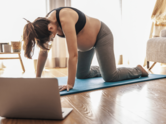















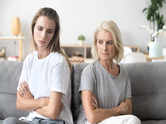
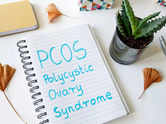

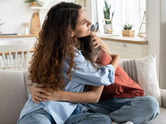
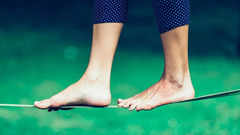




























closecomments
SIGN IN WITH
GoogleEmail